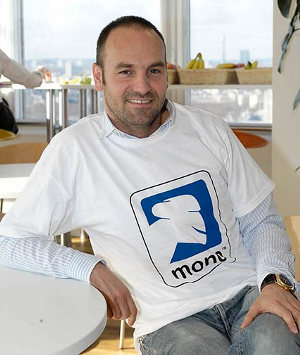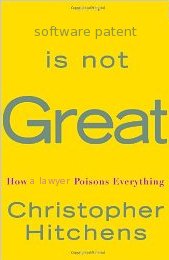06.01.13
Posted in GNU/Linux, Linspire, Microsoft, Ubuntu at 9:58 am by Dr. Roy Schestowitz
Mark Shuttleworth wants us to think Microsoft has changed

Summary: Canonical’s founder is making controversial moves which are helping Microsoft’s PR, such as the nonsense constantly heard from full-time PR staff and moles like Rebellino
UBUNTU used to be a nice project when it was portrayed as “all community” (with branding done accordingly) and some humanitarian cause, as implied by the literal name, “Ubuntu”. I loved Ubuntu when I became an early adopter. I had been told by a colleague (another Ph.D. student called Patrick) that Ubuntu was Debian-based and funded by a man who had visited space. Another colleague of mine, the man who created the first GNU/Linux distribution (MCC) helped me find a copy of Ubuntu 4.10, the first release. Back then it was just an easy-to-install Debian with GNOME loaded by default. It was long before Ubuntu became a branding venture of Mark and his ego trip (not the trip he made to space). I don’t approach this post from a position of hate, only sheer disappointment and a sense of being back-stabbed (betrayal) after sacrificing a lot of my personal life to Ubuntu. I am not alone. Follow reporters privately say the exact same thing.
“The other day Mark crossed out one of his recruitment tools — the promise he would try to make GNU/Linux ubiquitous on the desktop.”The other day Mark crossed out one of his recruitment tools — the promise he would try to make GNU/Linux ubiquitous on the desktop. Many followed his lead, contingent on this philosophical view or implicit promise. But he let us all down. Do not trust opportunist billionaires saying they’re out to get other billionaires. You would be fodder in their Turf Wars. I should have known this even a decade ago.
At the moment, Mr. Shuttleworth seems to be part of that "dick-sucking" contest/competition which Torvalds alluded to. He had been saying a lot of positive things about Microsoft recently, so he turned from pretending to be “against Microsoft” to “working with Microsoft”. What a sellout, what a weak compass of principles. Jono Bacon and his flattery to Microsoft as of late (Microsoft is now a partner) has also been noteworthy. This is like Linspire all over again.
Canonical wants us to think Microsoft monopoly is over, but it is not. Cisco is now complaining about Microsoft monopoly in yet another area. To quote: “The Cisco Systems (CSCO) Jabber vs. Microsoft (MSFT) Skype video conferencing war has pushed beyond product features and functions, and now includes a new word: Monopoly.”
Ubuntu.com was promoting Skype in its front page even after Microsoft had bought it. Skype is insidious spyware after Microsoft changed the infrastructure and put it in the land of the NSA. Here is more on the monopoly allegation; “Last year, Cisco took its case against the Microsoft-Cisco merger to court in Europe. While it didn’t oppose the merger, the networking giant wanted EU regulators to impose rules about “standards-based interoperability.” In a blog post, Cisco VP Marthin De Beer said the very future of video communications was at risk.”
“Canonical wants us to think Microsoft monopoly is over, but it is not.”Never mind other monopolies, eh? The Italian press prints some Microsoft lies from Rebellino, a sort of Microsoft mole whose purpose seems to be seeding puff pieces like this one, printing Microsoft’s lies to portray its actions as ‘open’. Canonical does the same thing now. iophk called it “Microsoft appeasement” and cited this discussion about it. There are many comments there, almost exclusively hostile towards Canonical. Adrian Lopez wrote: “Microsoft is losing market share to tablets and smartphones, but these are shut tighter than the PC platform ever was. I’m not sure that’s something to celebrate.”
With leadership from Microsoft inside Ubuntu, this should not be totally shocking. It is almost like Ubuntu got abducted. The Microsoft booster says Shuttlewoth gave up and in Ubuntu Forums an interesting comment says: “This seems like kind of a missed opportunity. I would have liked to see this bug closed with some fanfare, maybe in conjunction with the announcement of a big OEM deal or somesuch. As it is, it sounds like Mark just sort of said, “oh, yeah, that bug. I guess we can close that now or something.” If anything, the closing and his comments about it reflect less on Ubuntu’s success and more on Canonical’s waning interest in the PC platform.”
The Shuttleworth position can be summarised as follows:
- 2004: come join me, we’ll beat an illegal monopoly together.
- 2013: I’m friends with Microsoft now, never mind that monopoly.
The news got covered even by NPR and some big channels, not just technology sites that offer no criticism. A few years back, Shuttleworth was comparing Microsoft criticism to racism (false and derogatory analogy, akin to him calling his critics "trolls"), showing he was starting to treat Microsoft disdain as the problems An article on this subject by John C. Dvorak, who told me he was exploring Ubuntu, is actually expressing unease at IDG. Dvorak says: “Ubuntu’s maker says Linux will never achieve the goal of overtaking Windows. This because computers—and users—are dumber than ever.”
“If you were tasked with destroying Ubuntu as quickly as possible, you would do more or less what Mark Shuttleworth is doing right now.”This is sarcasm. iophk says “Dvorak is always a bit flamebaitish, but he brings up good points from time to time. In this case his points hit home. However, he forgets about the OEM lock-in.. no-one has gotten past that yet. It could happen but restricted boot makes it harder even at the OEM level.”
If you were tasked with destroying Ubuntu as quickly as possible, you would do more or less what Mark Shuttleworth is doing right now. Pro-Linux sites covered this and Linux expert Sean Michael Kerner chose the headline “Shuttleworth Fixes Ubuntu Linux Bug #1 – But It’s Not Really Fixed Is It?”
As put by Kevin Granade in his reply to me, “setting aside portable devices (irrelevant) and MS being nice now (bullshit), Ubuntu bug #1 isn’t “fixed”, it’s “wontfix”.”
On the closing of bug #1, one person sent me this photo by E-mail. “Microsoft still has a lock on the desktop and via restricted boot is trying to complete it and make it permanent,” he said.
“Is Microsoft extorting Android? Yes, and even Mark cannot deny this.”Recently, Shuttleworth has been aiding criminals rather than fighting them. “The closure comment reads like something agreed to as part of a deal with Microsoft,” iophk told me, thinking whether it is “deal or entryism?”
Steven J. Vaughan-Nichols, a leading GNU/Linux pundit, says “Shuttleworth, a top business Linux leader, praised Microsoft for its support of Linux.”
Carmony #2.
“Of course, I disagree,” Pogson writes. “No thanks, Mark. I will continue the fight as long as I can whether it is convenient to continue or not. Wintel survives on ignorance.”
Here is some more coverage of interest:
-
Of course, “people and distributions do evolve,” Google+ blogger Gonzalo Velasco C. pointed out. “Definitively, Ubuntu is no more than just a ‘friendly Debian.’ But in their quest to become a successful ‘Linux for human beings,’ they (specially guided by Mark Shuttleworth) took a very particular path.”
Specifically, “they have made some concessions, they have sort of imposed some changes to become ‘a huge (commercial) success,’ and we can see where they got,” he added. “Many users (especially the more GNU/Linux FLOSS, community oriented) have left, and many new users seeking something that works and is easy to use have come. C’est la vie.”
-
It’s really worth reminding ourselves of how, in many ways, open source won. True, it’s still hard to walk into a store and buy a PC that doesn’t have Windows preinstalled – one of the key complaints in that original bug report – but, in a way, that doesn’t matter anymore. Microsoft may still dominate the PC market, but what we traditionally think of as a PC is no longer the default personal computer. Heck, these days we even have a market-leading and (largely) open-source browser, in the shape of Chrome, that has become a significant operating system of sorts in its own right.
That’s hogwash.
Let’s recall, putting aside whether GNU/Linux ‘won’ or not, how Shuttleworth used to speak about Microsoft. Two quotes from half a decade ago:
- “That’s extortion and we should call it what it is. To say, as Ballmer did, that there is undisclosed balance sheet liability, that’s just extortion and we should refuse to get drawn into that game.” –Mark Shuttleworth
- “Microsoft is asking people to pay them for patents, but they won’t say which ones. If a guy walks into a shop and says: “It’s an unsafe neighbourhood, why don’t you pay me 20 bucks and I’ll make sure you’re okay,” that’s illegal. It’s racketeering.” –Mark Shuttleworth
Has any of this extortion stopped? No.
Is Microsoft extorting Android? Yes, and even Mark cannot deny this.
So, Mr. Shuttleworth, why have you befriended the Mafia? You are rapidly becoming an advocacy tool for that Mafia. You became what you hated and those who point it out are anything but “trolls” (a term he recurrently uses to describe critics). █
Permalink
 Send this to a friend
Send this to a friend
07.14.11
Posted in Linspire, Microsoft, Patents, Scalix, Xandros at 3:26 pm by Dr. Roy Schestowitz
Imitating Microsoft Windows and paying Microsoft for GNU/Linux a poor strategy

Summary: The companies that want to be like Windows die together, along with the lawsuit surrounding their merger/acquisition (as well as the sale of Scalix!)
IT HAS BEEN almost years since we regularly mentioned the second and third GNU/Linux vendors that agreed to pay Microsoft for patents. One bought the other, but this was followed by a long and ugly dispute between employees/managers of Linspire. Ever since then the court proceedings received little attention and the companies got mentioned as an historical reference in articles such as this one which mentions Linspire. Xandros vanished after Presto, although it got mentioned a lot in relation to ASUS returning to Linux, e.g. here and dozens of other publications in many languages. For the curious, we still have our Linspire/Xandros pages, which go all the way back to the time Kevin Carmony sold out to Ballmer, right after he had insulted GNU/Linux and used the “piracy” word. Anyway, the good news is that Carmony lost the legal case (plus legal expenses) in his attempt to defeat his former boss. According to a new report:
San Diego entrepreneur Michael Robertson claims he has scored a win in a lawsuit against the former CEO and CFO of Linspire. According to legal documents released by Robertson, former CEO Kevin Carmony and former CFO Chad Olson are liable for fraud, conspiracy, breach of fiduciary duty, and other counts in a spat over disagreements after Linspire was sold to Xandros.
And in other news, Scalix gets out of Xandros just years after Xandros bought it. Not a good sign for Xandros, eh?
Sebring Software Inc. (symbol: SMXI) acquired the Scalix Email and Calendaring Platform from Xandros Inc., a New York-based firm, for $12 million.
To complete the acquisition, Sebring will pay Xandros $5.75 million in cash over six months, plus 6.25 million shares of Sebring’s common stock, being valued at $1 per share, a release says.
There is more information about it in [1, 2]. █
Permalink
 Send this to a friend
Send this to a friend
05.27.11
Posted in GNU/Linux, Kyocera Mita, LG, Linspire, Microsoft, Patents, Samsung, SLES/SLED, Xandros at 11:17 pm by Dr. Roy Schestowitz
Using software patents, Microsoft turns Linux into its own cash cow whilst also making it more expensive

Summary: Techrights’ fight against ‘Linux tax’ from Microsoft is getting a lot more attention this Friday
“BOYCOTT NOVELL” was all about stopping Microsoft tax on GNU/Linux. More people are beginning to wake us and realise that our cause was all along on target, as several distributions of GNU/Linux which paid Microsoft for this ‘privilege’ simply went extinct (Xandros' price was $50 for Microsoft patents). Our goal was to ensure that people/companies do not become dependent on Microsoft-taxed distributions, as that would simply serve Microsoft’s goal of making GNU/Linux its own cash cow. SUSE, Turbolinux, and Linspire were also part of this problem and all those companies went into the ashtray of history. There are more such companies, but they sell hardware, not purely software.
Everyone appears to have just ‘discovered’ that “HTC Pays Microsoft $5 Per Android Phone” and there is already a lot of coverage about it. Quoting The Register:
Buy an HTC smartphone and $5 of what you spent on it goes to Microsoft – even if you’ve just bought an Android device.
So says Citi analyst Walter Pritchard in a note sent out to investors today, according to Business Insider.
Microsoft announced the royalty payment deal – the result of a legal settlement – last year, but the amount the software giant receives was not made public. MS has alleged Android infringes its intellectual property, and has other smartphone vendors in its sights.
Pritchard reckons Microsoft is pursuing other Android handset makers for a royalty of $7.50-12.50 per device. HTC clearly got of relatively lightly by settling Microsoft’s claims out of court.
[...]
Microsoft can’t be too forceful. If can’t afford to overly annoy those vendors who’re also selling phones based on its Windows Phone OS – they might just drop it, in a huff. Or they may trade lower royalties for a stronger commitment to WinPho – something Microsoft needs far more than even a few hundreds of millions of dollars in royalty payments.
Saumsung, LG, and Kyocera Mita also pay Microsoft for Android. There might be more such companies, perhaps not prominent ones though. Faced with a price tag, people act surprised about it even though our site has highlighted this issue since 2007 when Samsung signed the first such deal and in order to discourage similar deals we called for a boycott. The bottom line is, we do have a problem here, but it is not a new problem. We even found one anti-Linux propagandist writing: “This is just fraud. I really like HTC phones with their Sense interface but I have a Galaxy S II on order and I will not buy any HTC phone again while they give in to Microsoft’s blackmail.”
According to other news from today, Lodsys wants to go after Android developers. “Patent holding company Lodsys caused a stir recently when it demanded money from iOS developers using in-app payments,” says this report, “something it holds a patent for. Now it appears that Android developers could be next in line for a stern email from the firm.
“Android Community has spotted one developer who is claiming to have received a request for payment in relation to integrating in-app payments into an Android app. If true, it could stir up another hornet’s nest of anger in the development community.”
“Saumsung, LG, and Kyocera Mita also pay Microsoft for Android.”This is actually not news and we alluded to it before. Apple, unlike Google, is a patent aggressor, so it is not the same situation for Android and Apple’s hypeOS. Interestingly enough, Microsoft’s ally Nokia is also giving a hard time to Apple. How long before Microsoft uses Nokia to sue Android distributors too? Nokia has given hints about it. Microsoft’s strategy is to tax Linux from as many directions as possible. It’s blackmail [1, 2, 3, 4, 5, 6, 7], so regulators should step in to intervene. █
“That’s extortion and we should call it what it is. To say, as Ballmer did, that there is undisclosed balance sheet liability, that’s just extortion and we should refuse to get drawn into that game.”
–Mark Shuttleworth
Permalink
 Send this to a friend
Send this to a friend
11.15.10
Posted in Courtroom, Finance, Law, Linspire, Patents at 1:15 pm by Dr. Roy Schestowitz

Summary: Linspire case ends up with very high legal expenses and this leads to a discussion which can be generalised to account for patent litigation
SWEEPING statements are risky as they contribute towards alienation and sometimes elimination of friends (or potential friends) and controversial topics are rarely brought up as they too are divisive. But for readers of this site who are patent lawyers and have stayed with us thus far, the twist above (around Christopher Hitchens’s book) will probably not be a shocker.
Techrights has claimed on nearly thousands of occasions and in about 100 posts that inertia for the broken (overburdened) patent system comes from patent lawyers, who benefit directly from increased bureaucracy and “lawyer time” (pay is usually clocked). The more messy the system, the more such lawyers (patent lawyers in particular) will be required and the more money they will extract from people who actually create things of value to society.
The reason we bring this up again is that there’s news from Linspire and it’s another episode in the drama of litigation [1, 2, 3], where Michael Robertson (head of Linspire/Lindows) is forced to pay $300,000+ to a former employee. Now, watch where most of this money is going:
For those of you following the case of Michael Robertson’s insane attacks on former Linspire employees, you will be interested in the latest development from the court today…
One of the former Linspire employees that Robertson attacked was the Controller. This employee (along with several others) was vindicated of all counts in September. Because the Controller had a contract dispute with Robertson, attorney fees are usually awarded, but of course Robertson fought paying. Today, the court awarded the Controller and his lawyer $215,000 in legal fees and $22,958 in prejudgement interest. The Judge also affirmed the jury’s damages judgement of $72,500, to be paid by Robertson (Linspire) to the Controller. This means that Robertson will have to pay over $300,000 to just this one employee for his failed attempts in attacking him in the courts. You can read the ruling here. (This is the tentative ruling which was affirmed in court today by Judge Taylor.)
We thought it was a good example of how this sick legal system operates. It’s a system which puts financial burden on those involved, including companies that are accused of patent litigation. In this case, Linspire helps make lawyers richer and thus stronger (e.g. in lobbying). In such cases, the lawyers have nothing to lose, only their clients do. Someone should pass this message/memo to the likes of Judge Rader, who still fails to acknowledge that this is a major problem when it comes to patents too. Let’s work on improving science and expanding the scope of knowledge rather than suing each other. Many disputes can be resolved outside the courts and elimination of weaponry like patents would help increase productivity. Just watch what the Cold War did to the Soviets (and to a lesser degree to the United States). They could produce a lot of warheads (enriching the Military Industrial Complex, analogous to houndish — trigger-happy lawyers), but could not take good care of their own population. █
“In the 20th century, the pace of technological developments increasingly became tied into a complex set of interactions between Congress, the industrial manufacturers, university research, and the military establishment. This set of relations, known more popularly as the “military-industrial complex,” emerged because the military’s unique technological demands, concentration of funding, large scale application, and highly centralized control played a dominant role in driving technological innovation. Fundamental advances in medicine, physics, chemistry, computing, aviation, material science, naval architecture, and meteorology, among other fields, can be traced back to basic and applied research for military applications.” –Wikipedia
Permalink
 Send this to a friend
Send this to a friend
09.23.10
Posted in GNU/Linux, HP, Linspire, Microsoft, Patents, Vista 7, Xandros at 8:35 pm by Dr. Roy Schestowitz

Summary: “Microsoft tax” in tablets is recalled now that Linspire meets MeeGo and Vista 7 allegedly meets the HP “Slate” again
SOME DAYS AGO we wrote about Linspire disputes following the sale of the company’s assets, including invisible ‘assets’ like the “Linspire” trademark.
Well, trademarks are a touchy subject in the Free software world and “Linspire” was never truly used as a trademark by Xandros which bought it. It has been MIA for 2 years.
Xandros is hardly mentioned anymore (with few exceptions like this one) and Linspire is rarely but still mentioned as a supported platform.
Earlier today we learned about this “Linspire on MeeGo” tablet thing, which is baffling as no other source seems to be covering it and it’s not clear what Linspire has to do with it.
The Linspire-MeeGo tablet will likely support touch-based input methods and gestures. Linpus will be creating touchscreen-specific apps to run on MeeGo, such as an eReader, maps, mail, a browser, and a media player. Linpus will also include a contact manager.
We were pretty sure Linspire (Ballnux) was in its grave by now; given that it was a Microsoft-taxed distribution, no love was lost. Is this “Linspire-MeeGo tablet” taxed by Microsoft for imaginary patent violations? What would Nokia say now that its CEO is a former Microsoft president (also see [1, 2, 3])?
Speaking of tablets, in our previous posts about the HP-Hurd scandal [1, 2, 3, 4] we explained that Microsoft entryism at HP seemed to have had the effect of making the company neglect Linux and bring back Vista 7 to the “Slate”, even after HP had officially abandoned it. According to this new video (“Supposed HP Slate prototype video”), Microsoft cronies at HP may have had their way.
It’s a Windows 7 version of the same old Microsoft Tablet PC form factor, but this time, with a finger instead of a stylus. They used to call these “slate”-type Tablet PCs. They were slaughtered in the market by the “convertible” type that had the flip-around laptop keyboards, because most Windows software simply works much better with a keyboard and trackpad.
This was brought to our attention by lnxwalt, who dented: “HP “Slate” video: http://cl.ly/2W0J via @mikegrace@twitter.com — should have killed it; #WebOS tablets should be *much* better. [...] Holy cow! That thing is awful! Is it Flash that makes it so slow?”
Well, Vista 7 is not suitable for portable devices. That’s why Linux/Android does so well on these form factors whose sales grow. █
Permalink
 Send this to a friend
Send this to a friend
09.21.10
Posted in Courtroom, GNU/Linux, Linspire, SCO at 9:25 am by Dr. Roy Schestowitz

Summary: The many things that SCO and Linspire have in common; the verdict is in regarding the Kevin Carmony vs. Michael Robertson case
TWO years ago Linspire’s founder sold the company’s assets to Xandros and it has been over a year since we last heard about the legal fight this led to (within Linspire). Basically, Kevin Carmony and others alleged that Michael Robertson did not say where the money went and they have been fighting quite viciously for quite a long while. Well, a verdict is finally in, a long time after it had all begun:
Carmony, who sold out to Steve Ballmer 3 years ago, tells the story in his blog:
Once again, Michael Robertson’s bullying has been put to an end by the greatest legal system in the world. Yesterday, a jury vindicated four former Linspire employees who were being wrongly abused and attacked by Michael Robertson. He knew these employees had done nothing wrong, but used them as innocent pawns in his attacks.
Another company which is selling virtually all of its assets is SCO [1, 2, 3] and we have found two more articles about it [1, 2]. SCO and Linspire have several things in common
- Both companies were once in the GNU/Linux business, still obsessed with proprietary software
- Both companies received money from Microsoft to FUD Linux
- Both companies are/were selling all their assets
- All that remains in both companies is a legal battle
The world needs neither SCO nor Linspire. █
Permalink
 Send this to a friend
Send this to a friend
08.29.10
Posted in Linspire, Novell, SCO, Xandros at 12:11 am by Dr. Roy Schestowitz

Summary: SCO’s sale of the software business is approved, bringing back memories of Linspire
SOME TIME earlier this month we wrote about SCO looking to raise more money after a seemingly-fake bankruptcy. An author who is typically a SCO sympathiser has just caught up with the news about the court approving SCO’s sale of its software business.
The SCO Group’s software business is up for sale, but that might not mean an end to its controversial lawsuits against IBM Corp. and Novell Inc.
Judge Kevin Gross in Delaware has approved procedures for selling off the Lindon company’s Unix business before the end of this year.
Such sales of assets are not so rare. In last week’s news, for example, we also learned about Novell’s familiarity with the practice. From Jon Oltsik about HP:
They company backed this up when it sold its identity management portfolio to Novell.
Two years ago Xandros bought Linspire’s assets (and threw away the trademarks, which it never truly used). Linspire failed for reasons which are explained in this month’s article from a former Xandros user and the sale of Linspire to Xandros is also mentioned in this new press release about Michael Robertson and others.
Here is where Xandros is said to be today:
Xandros – If you prefer a Linux distribution with a Microsoft connection, Xandros is the one for you. Rumors aside, Xandros and Microsoft collaborate in what’s known in technical circles as “cooperatition.” This means that they compete cooperatively. To find out more about this unique perspective, check out the Xandros About page.
It does not seem like anyone really uses or buys it anymore. It’s out of date. The same goes for Presto, which very rarely gets a mention anywhere. Xandros — like KNOPPIX — has not much of a story to tell anymore. The main Debian derivative which gets all the attention is Ubuntu, as pointed out now that Debian turns 17.
Many popular Linux distros are based on Debian and still heavily rely on ‘upstream’ development including the very popular Ubuntu, but also KNOPPIX, MEPIS, Xandros and many others. In turn, these distros have each been used as the basis for many other Linux flavors.
It would be interesting to know what Ian Murdock, Debian’s founder, is up to now that OpenSolaris/”Project Indiana” received a blow from Oracle. Murdock has been exceptionally quiet for years (especially since he joined Sun Microsystems). █
Permalink
 Send this to a friend
Send this to a friend
08.11.10
Posted in GNU/Linux, Linspire, Microsoft, Xandros at 2:57 pm by Dr. Roy Schestowitz

Summary: Only days left for Xandros to decide that it wants to keep the Freespire domain alive; CNR Warehouse down for over 3 months
IT HAS been a long time since we last wrote about Xandros, which absorbed Linspire (both companies had signed a patent deal with Microsoft).
Xandros has already killed Linspire (the distribution), as it announced shortly after it bought the company. It said it would stay committed to Freespire, but it never made a release, not even of Xandros, for which it offers Microsoft patent 'protection' at the cost of $50. According to this thread, Xandros has only days left to renew the Freespire domain name. Will it do it? One former user is convinced that Xandros will make it “officially dead” (we too let our “Boycott Xandros” and “Boycott Linspire” domains expire last month):
According to this thread on the Freespire forum, the Freespire website and domain will expire on August 22, 2010, which at this time is a mere two weeks away. If Xandros doesn’t renew the website and domain and allows the Freespire website to go offline, then Freespire will be officially dead. Xandros cares more about kissing Microsoft’s ass and making insignificant OEM deals and killing off everything associated with Linspire, especially Freespire and CNR. The CNR Warehouse has been down for at least THREE MONTHS. Xandros, do you realize the money you could make from selling “Click N Buy” software on CNR?
That’s just what happens to almost every company which signs a submissive Microsoft deal. █
Permalink
 Send this to a friend
Send this to a friend
« Previous entries Next Page » Next Page »

























 Content is available under CC-BY-SA
Content is available under CC-BY-SA